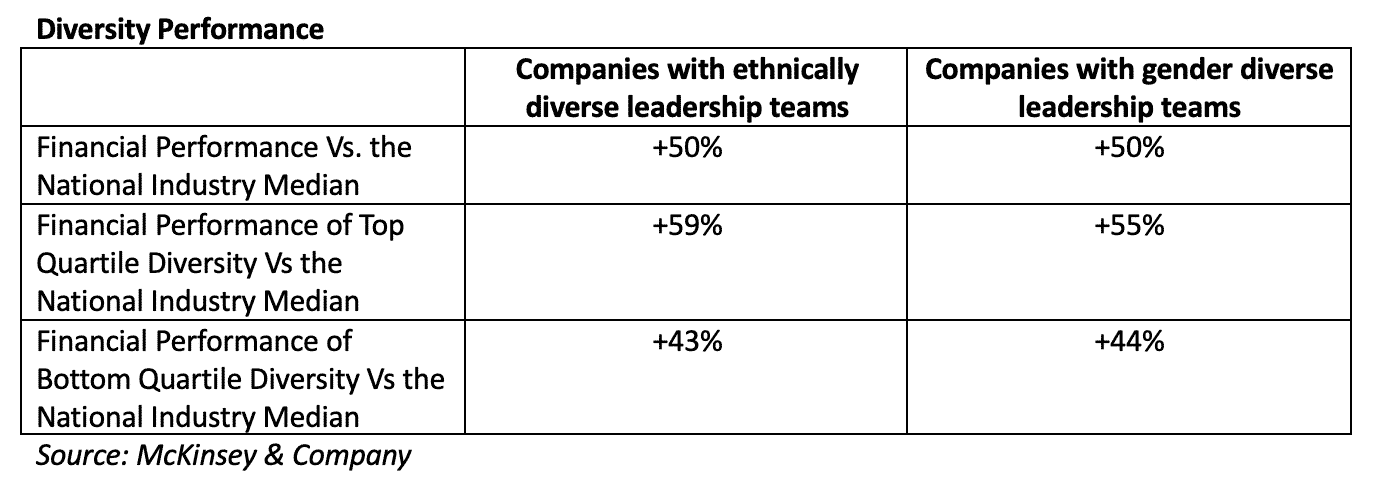In the last year or two, real estate leaders are increasingly realizing that diversity, equity and inclusion (DEI) is a key area to focus on within their businesses. Striving for diversity and inclusion with an emphasis on equity is more than just a legal or moral requirement; it can also provide a competitive advantage.

Diversity improves bottom lines
The results of a 2019 global study by consulting firm McKinsey and Company that analyzed the performance of 1,039 companies in 15 countries with respect to the profit effect of more ethnically and gendered diversity among leadership made it clear that diverse teams outperform the market.
In terms of ethnic diversity, the companies studied outperformed their national industry median cash-flow performance (as measured by earnings before interest tax deductions and amortization (EBITDA)) by a median of 50 percent.
What’s more, the companies with higher levels of leadership diversity saw even better results – the companies in the top quartile in terms of ethnic diversity outperformed the national industry median by 59 percent. This compares to the bottom quartile outperforming the national median by a median of 43 percent.
The same performance boost goes for diverse gender leadership teams.
Companies with a diverse leadership team in terms of gender outperformed the national industry median financial results by a median of 50 percent. As with the ethnic results, companies with more diverse gender leadership teams outperformed those with less-diverse teams; the companies in the top quartile by diversity outperformed the market by 55 percent, while those in the bottom quartile outperformed it by a median of 44 percent.

Data also suggests that DEI improves a company’s talent pool. A 2020 survey of 2,745 employees and companies from employer-information site Glassdoor found that for three-quarters (76 percent) of job hunters and employees, company diversity impacts their evaluation of offers and companies.
Steps to take
The first step required to execute a successful DEI strategy involves a clear, strong commitment from leadership and management. Change of this sort needs to come from the top.
Steps to take include:
- Align intention with perception to deliver measurable solutions
- Realize that messaging is only as strong as the action behind it
- Set clear DEI goals
- Identify critical and specific gaps to address within the current structure
- Develop metrics to gauge both short-term and long-term progress toward DEI goals
- Encourage engagement strategies for creating stronger teams
- Remember that diversity is not a standalone program but an essential element of the organization’s value proposition and strategic focus
When looking at developing a hiring strategy for diverse employees, review this article from T3 Sixty’s head of talent, Kelly White.
Takeaway
Many are beginning to realize that increasing diversity in real estate is not just about doing the right thing but about so much more – improving company culture, providing more opportunities to more people, improving communities, and, increasingly, helping make businesses more resilient and profitable. For more insight into how to build a diverse leadership team, reach out to me, Kenya Burrell-VanWormer, T3 Sixty’s head of diversity consulting, at kenya@t3sixty.com. Also, consider supporting the Real Estate Apprentice Foundation, a nationwide industry nonprofit designed to help people from underrepresented and underprivileged groups jumpstart real estate careers.
